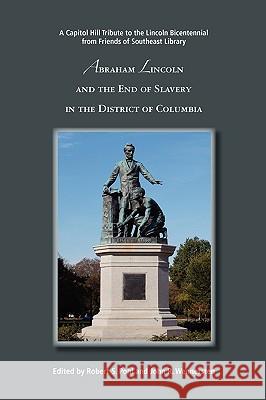Abraham Lincoln and the End of Slavery in the District of Columbia » książka
Abraham Lincoln and the End of Slavery in the District of Columbia
ISBN-13: 9780578016887 / Angielski / Miękka / 2009 / 156 str.
Slavery-furiously debated, yet recognized in the Constitution-was a stain on the nation's consciousness since the founding of the Republic. As the country grew, legal battles erupted over the fate of fugitive slaves and the rights of slave-owners to take their property into free states. Nowhere was the issue more sharply drawn than in the nation's capital, where government leaders saw first hand the shame and disgrace of legal slavery and the inherent moral conflict with guarantees in the Declaration of Independence. Decades of agitation for change came to fruition on April 16, 1862, when Abraham Lincoln signed legislation that ended slavery in the District of Columbia-nine months before the Emancipation Proclamation, which liberated slaves only in the Confederacy, and a full three years before ratification of the Thirteenth Amendment.
Slavery-furiously debated, yet recognized in the Constitution-was a stain on the nations consciousness since the founding of the Republic. As the country grew, legal battles erupted over the fate of fugitive slaves and the rights of slave-owners to take their property into free states. Nowhere was the issue more sharply drawn than in the nations capital, where government leaders saw first hand the shame and disgrace of legal slavery and the inherent moral conflict with guarantees in the Declaration of Independence. Decades of agitation for change came to fruition on April 16, 1862, when Abraham Lincoln signed legislation that ended slavery in the District of Columbia-nine months before the Emancipation Proclamation, which liberated slaves only in the Confederacy, and a full three years before ratification of the Thirteenth Amendment.











